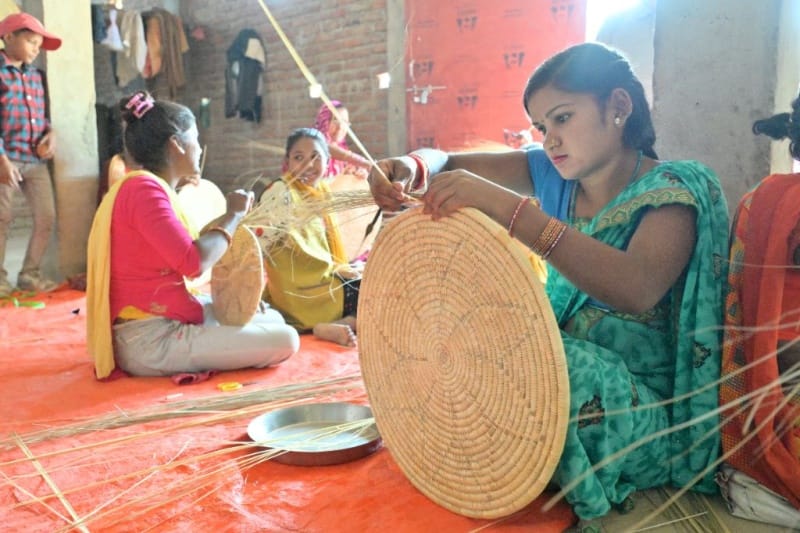In a quiet corner of Laxmipur village in Lumbini, Nepal, a group of women gathers each day in a borrowed barn to learn an age-old craft. With every knot and weave, they breathe new life into Dhakiya—traditional handwoven mats once treasured as bridal gifts. Beyond the artistry, this initiative represents hope, empowerment, and a step toward self-sufficiency.

Leading the training is Subhauti Pal, an advocate for preserving the Dhakiya craft. “These mats, once symbols of tradition, have faded into obscurity,” she explains. “It’s heartening to see this skill revived through Tzu Chi’s efforts.” Thanks to these lessons, the women of Laxmipur are reconnecting with their heritage while opening doors to new opportunities.
Weaving Confidence and Community
For 21-year-old Sarita Lodh, the workshop has been transformative. Spending hours each day weaving, she has gained a skill she plans to pass on to her neighbors. “Learning this craft has boosted my confidence,” Sarita shares. “Now I can help others in my village improve their weaving skills.”
The workshop does more than teach weaving; it builds bonds. As the women work, they listen to inspiring Dharma stories like “The Golden Snake” and chant verses from the Sutra of Infinite Meanings. This spiritual dimension fosters a sense of peace and shared purpose.

A Path Paved with Challenges
The initiative, inspired by Dharma Master Cheng Yen’s teachings, aims to provide practical skills to uplift local communities. Malaysian volunteer Kam Yoke Lee recalls the hurdles faced since launching the “One Village, One Team” system in March 2024.
“At first, we offered bananas and snacks to attract participants, but once we stopped, many lost interests,” Lee recounts. Adding to the challenges were rumors that created mistrust. Despite setbacks, volunteers persevered, even taking part in farm work to plant potatoes alongside villagers to demonstrate their sincerity.
When local elder Gyani offered his barn as a training space, it marked a turning point. “It hasn’t been easy, but seeing these women grow in skill and spirit has made it all worthwhile,” says Lee.

Looking Ahead
Tzu Chi volunteers are now working to create marketing opportunities for Dhakiya, aiming to transform this traditional craft into a sustainable livelihood. “We hope their hard work leads to a brighter future,” Lee reflects. “This is our way of honoring Buddha’s homeland and fulfilling our mission to bring compassion and hope where it’s needed most.”
By Ru-Lu Bai



